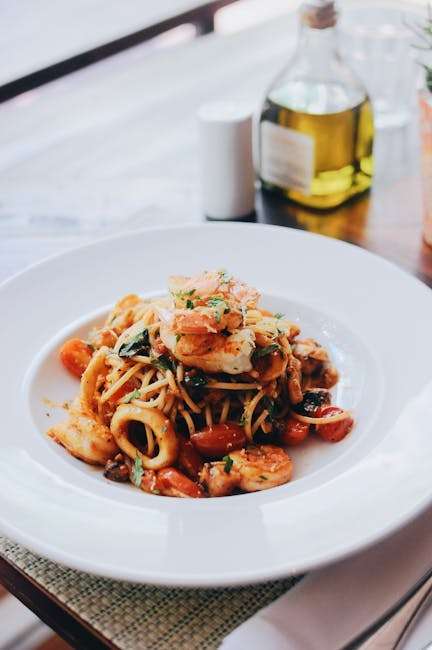The Science Behind Perfectly Cooked Pasta ?
There’s something truly satisfying about a plate of perfectly cooked pasta. Whether you’re an amateur cook or a seasoned chef, understanding the science behind pasta cooking can elevate your culinary game. In this blog post, we’ll dive into the chemistry of pasta preparation, explore the best techniques, and answer some common questions. So, let’s get ready to transform your kitchen into an Italian bistro!
Table of Contents
1. The Importance of Pasta Selection
2. Boiling Water 101: The Science of Temperature
3. Salt and Its Role in Pasta Perfection
4. Time and Temperature: Cooking to Al Dente
5. The Finishing Touch: Sauce Pairing
6. Conclusion
7. FAQ
The Importance of Pasta Selection ?
Before you even think about boiling water, selecting the right type of pasta is crucial. Different pasta shapes serve different purposes and hold sauces in unique ways. For instance, spaghetti is ideal for lighter, oil-based sauces, while penne is perfect for thick, chunky sauces. Choosing high-quality pasta made from durum wheat semolina is vital for achieving that perfect al dente texture.
Boiling Water 101: The Science of Temperature ?
Boiling water might seem straightforward, but there’s more to it than meets the eye. The key is to ensure the water is boiling vigorously before adding the pasta. This rapid boil helps prevent the pasta from sticking together by keeping it in constant motion. Aim for a rolling boil where large bubbles continuously break the surface of the water. The higher the temperature, the quicker the pasta will cook, ensuring it maintains that firm texture.
Salt and Its Role in Pasta Perfection ?
Adding salt to pasta water is a non-negotiable step for authentic Italian cooking. But why? Salt not only enhances the flavor of the pasta itself but also affects the water’s boiling point. When salt is added, it slightly raises the boiling point of water, allowing the pasta to cook more evenly and absorb flavor as it cooks. A good rule of thumb is to use about 1-2 tablespoons of salt per gallon of water.
Time and Temperature: Cooking to Al Dente ??
The term “al dente” refers to pasta that is cooked to be firm to the bite. To achieve this, follow the cooking time on the pasta package as a guideline, but start checking the pasta a couple of minutes early. Al dente pasta has a slight resistance in the center when bitten, offering a satisfying texture. Overcooking pasta not only affects its texture but can also cause it to lose nutrients and become gummy.
The Finishing Touch: Sauce Pairing ?
Once your pasta is perfectly cooked, it’s time to think about the sauce. Pairing the right sauce with the right pasta can make all the difference. For example, a rich, creamy sauce clings beautifully to fettuccine, while a tomato-based sauce complements the spirals of rotini. After draining the pasta, it’s often recommended to add it directly to your sauce, allowing it to absorb flavors and achieve a harmonious dish.
Conclusion
Mastering the art of cooking pasta is all about understanding the science behind it. From selecting the right pasta and ensuring the water is at a full boil, to seasoning with salt and achieving the perfect al dente texture, each step plays a crucial role. Armed with this knowledge, you’ll be ready to create delicious pasta dishes that will impress any dinner guest.
FAQ
Q: How much water should I use when cooking pasta?
A: Use about 4-6 quarts of water per pound of pasta. This ensures the pasta has enough room to cook evenly without sticking together.
Q: Can I add oil to the pasta water?
A: While some people add oil to prevent sticking, it’s unnecessary if you use enough water and stir occasionally. Oil can also prevent sauce from adhering to the pasta.
Q: Why does my pasta stick together?
A: Pasta usually sticks together if there’s not enough water or if the water isn’t boiling vigorously. Stirring occasionally and using ample water can prevent this.
Q: How can I tell if pasta is truly al dente?
A: Taste a piece about a minute before the package’s recommended cooking time. It should be firm but not crunchy, with a slight resistance when bitten.
Q: Should I rinse pasta after cooking?
A: Generally, it’s best not to rinse pasta after cooking, as rinsing can remove the starch that helps sauces adhere. However, rinsing is acceptable for pasta salads or when stopping the cooking process immediately.
